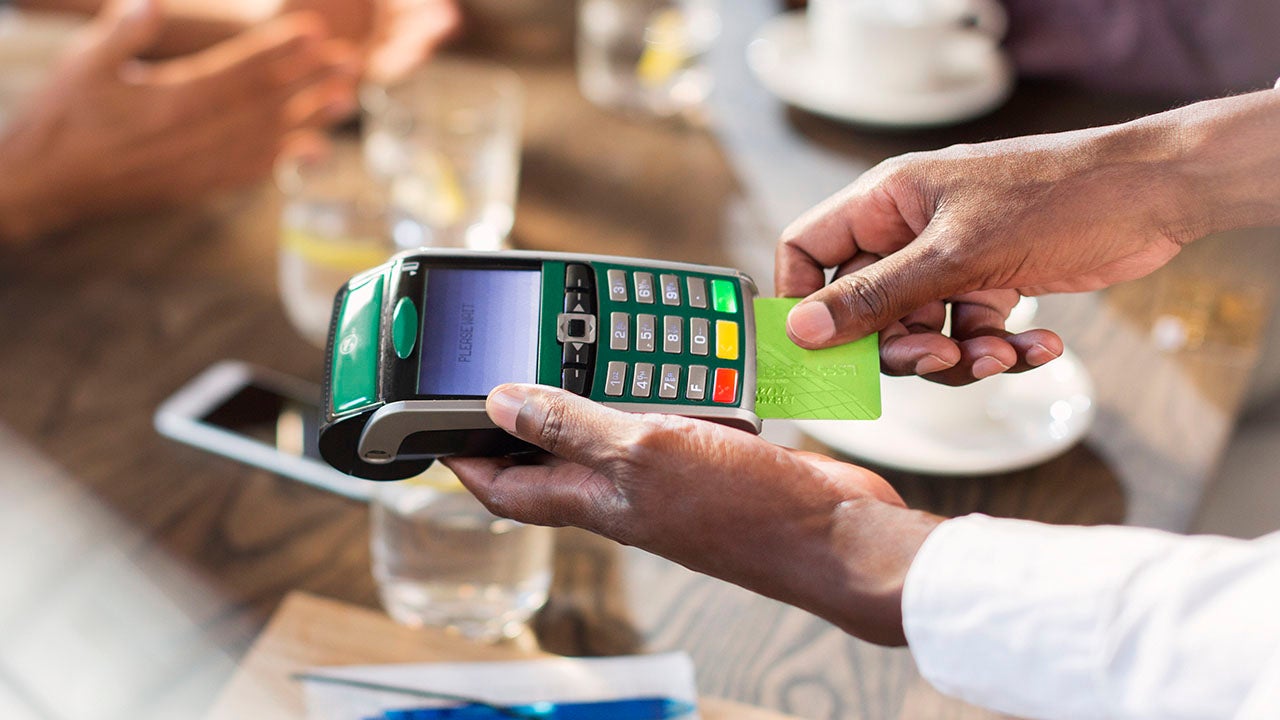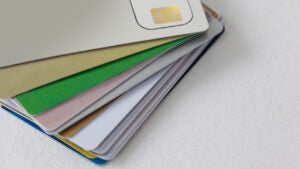Credit card hacks that don’t actually work

Key takeaways
- Credit card hacks are popular ways to save money and earn rewards, but some can negatively affect your credit or result in additional fees.
- Strategies to consider instead include getting a card with generous rewards, asking for a credit limit increase and paying bills with your card.
- Read the fine print and be careful with certain practices like canceling and reapplying for the same card, buying prepaid cards or paying friends and family electronically.
Credit cards come in handy when you need them, making it safer and more convenient to pay for goods and services. And with the right rewards cards you can employ strategies to maximize your rewards and other perks. But although some strategies can help you earn greater rewards more quickly, some rewards-pursuing tactics can hurt your credit — and even cost you money.
Find out more about the pros and cons of credit card hacking, which credit card hacks don’t work and which to consider instead.
Credit card hacks explained
With interest rates remaining high and inflation still on everyone’s mind, consumers everywhere are taking a closer look at their finances and exploring creative money maneuvers like credit card hacks.
Credit card hacks are ways to use credit cards to save money and earn rewards, especially in a way that makes users feel like they are beating the system or taking advantage of some secret knowledge.— Ted Rossman, Bankrate Senior Credit Card Analyst
Personal finance expert Andrew Lokenauth notes that credit card hacking has become popular in recent years due to the rise in premium travel and cash back cards that offer lucrative ongoing rewards programs.
“Consumers who carry these cards aim to extract maximum value from these programs using clever strategies,” he says.
Americans commonly learn about credit card hacks through online articles, blogs, credit card forums like Reddit and FlyerTalk, social media groups, word-of-mouth referrals from other cardholders and by testing out trial-and-error hacks themselves.
Pros and cons of credit card hacks
Credit card hacks can be a useful tactic in getting the most value out of your card, but you should be aware of the downsides too. Review these pros and cons as you fine tune your rewards strategy.
Pros
- You can earn significantly more rewards and bonuses with some of these credit card hacking strategies.
- Hacking can enable you to get the most out of the cards you already have by better customizing your usage to fit your spending patterns.
- Hacking may give you the satisfying feeling that you’re “beating the system” and getting one over on issuers.
Cons
- You could end up paying fees or incurring penalties if you make the wrong moves.
- Some of these credit card hacking strategies fall into gray areas ethically and legally, resulting in account closures or forfeiture of the rewards you’ve earned.
- You may be tempted to overspend, which can lead to debt and a potential negative impact on your credit score.
Credit card hacks to avoid
It’s important to be careful and steer clear of approaches the experts frown upon. Here are some common credit card hacks that don’t work:
Canceling the card to avoid a fee
Many of the credit cards that offer the best bonuses and incentives often charge an annual fee. There’s nothing inherently wrong with charging an annual fee — it can still be worth keeping the card and paying the fee if you continue to use the card responsibly and earn sufficiently valuable rewards to offset it. However, a big mistake the pros see consumers make is terminating these cards before that annual fee kicks in.
This is a definite no-no and one of the fastest ways to get into the penalty box with a card issuer. The issuer could ban you from future offers or even claw back the bonus they gave you. You should keep a card open for at least one year before canceling. Better yet, don’t cancel if the card isn’t working for you; instead, after a year or more is up, request a product change to a different offering from the same issuer.— Ted Rossman, Bankrate Senior Credit Card Analyst
Pursuing the 15/3 credit card hack
Here’s a ploy that’s been debunked as a waste of time: The 15/3 hack, which supposedly boosts your credit score if you pay half of your credit card payment 15 days before and the other half three days before your account statement deadline date. While there’s generally no harm in doing this, it won’t improve your credit.
Purchasing items to earn rewards but then returning the items
Another sketchy practice is to buy products with your chosen credit card, which garners more points or rewards, and then bring those goods back to the store for a refund, assuming you’ll get to keep those rewards.
Be forewarned that many credit card issuers typically take back your rewards when you return something, so this likely won’t work. And excessive returns could get you flagged or banned by credit card issuers and the retailers where you purchased the items.— Ted Rossman, Bankrate Senior Credit Cards Analyst
Buying prepaid cards with your credit card
Let’s say you want to purchase a prepaid credit card that has a set value stored on the card, such as a $25 prepaid Visa. Doing so should, in theory, earn you rewards on the credit card you used to purchase the prepaid card. But not so fast: Many issuers typically don’t give rewards for these items. Jeff Rose, a certified financial planner and CEO of GoodFinancialCents.com, stresses this point:
Many credit card issuers categorize prepaid card purchases as cash advances, which can incur high fees and interest rates.— Jeff Rose, certified financial planner and CEO of GoodFinancialCents.com
Canceling and then reapplying for the same card to earn a sign-up bonus
Imagine you apply for a card that provides a generous sign-up bonus, use the card long enough to earn that bonus and then cancel your account. Then, you reapply for the same card in the hopes that you’ll get the same sign-on bonus or another valuable incentive. Sounds like easy money, right? Problem is, this scheme likely won’t work; even if you are approved, the credit card company isn’t likely to issue that same reward again.
Repeatedly opening and closing the same card may result in a declined application or declined bonus incentive as well as a lower credit score. It’s also considered unethical by many issuers.— Jeff Rose, certified financial planner and CEO of Goodfinancialcents.com
Paying your friends and family electronically
It’s easy and simple to send electronic payments via Venmo, PayPal, Apple Pay and other means. But doing so can be more costly in the long run than you may think.
While convenient, sending payments to friends through apps like Venmo can accumulate fees when you use your credit card as the funding source, which ultimately negates any rewards earned.— Jeff Rose, certified financial planner and CEO of Goodfinancialcents.com
Recommended credit card hacks
Rest assured, there are still plenty of safe, legal and suggested ways to shore up credit card rewards without having to worry about fees, penalties or impaired credit. Consider these methods instead.
The bottom line
Credit card companies make a lot of money from consumers in the form of interest charges and various fees, which is why issuers can afford to offer cardholders valuable sign-up incentives and ongoing rewards.
Plenty of generous cards are available to apply for and use to your advantage. Just be sure to choose the right card based on your spending habits and use that card responsibly without incurring debt you cannot afford to repay. Ultimately, it’s best to go with the credit card hacks that yield the greatest possible rewards without repercussions.
Why we ask for feedback Your feedback helps us improve our content and services. It takes less than a minute to complete.
Your responses are anonymous and will only be used for improving our website.






